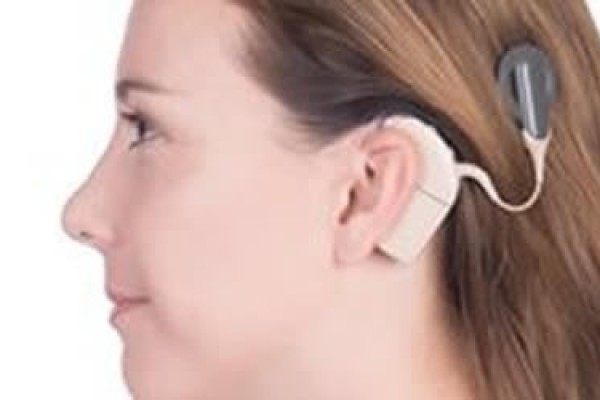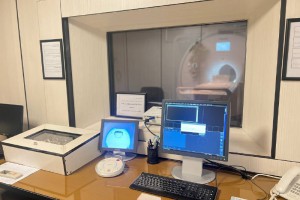Brain Responses to Lip-Reading Can Benefit Cochlear Implant Users
Contrary to common belief, lip reading can have a beneficial effect for those with cochlear implants. Researchers found the more a person’s brain responded to lip reading, the more responsive the brain became to sound delivered through the implant.
A world-first study has found that lip-reading may have a beneficial effect on the brain and on a person’s ability to hear with a cochlear implant, contrary to what was previously believed.
Currently, when someone receives a cochlear implant, clinical professionals delivering rehabilitation encourage them to focus on the sound only, and to avoid reliance on visual language (such as lip-reading) for fear that it will limit how well they are able to learn to hear with their cochlear implant.
The study, published in the journal PNAS, found that, in contrast to existing theory, the more a person’s brain became responsive to lip-reading the more it also became responsive to sounds delivered through their cochlear implant, and the better they were able to hear. The results could inform future rehabilitation of people with hearing loss who have implants fitted.
The team of hearing experts at the NIHR Nottingham Biomedical Research Centre used a brain imaging method called fNIRS (functional near-infrared spectroscopy) that uses light to measure brain activity. The technique works by shining harmless infra-red light into the head to measure how much oxygen different parts of the brain are using – the more oxygen being used, the more active that part of the brain.
Lead researcher on the project, Dr Carly Anderson, said: “Up to now, there has been no scientific evidence of a link between how the hearing parts of the brain respond to visual speech and how well a person can hear with their cochlear implant. It is difficult to measure brain activity in people with implants as the device has magnetic and electrical parts that are incompatible with well-known scanning methods like MRI. So we studied deaf adults who received cochlear implants from the NHS Nottingham Auditory Implant Programme and used infra-red light to examine brain activity instead.
“We measured how hearing parts of the brain responded to visual speech before the volunteers received their cochlear implant, and then again 6 months after the implant had been switched on. From this we could see how their brain activity changed over that time. We also tested how well they could hear speech with their implant 6 months after switch-on, using speech tests which require volunteers to repeat back spoken sentences played to them.”
Dr Douglas Hartley from the NIHR Nottingham Biomedical Research Centre and ENT Consultant Surgeon at Nottingham University Hospitals NHS Trust, said: “The results of the brain imaging were very interesting and revealing. We found that the brain response to lip-reading did not need to decline from before to after implantation for a person to hear well with their cochlear implant. Instead we found that a greater increase in the brain response to lip-reading was linked to better hearing ability, as well as a greater increase in the brain response to auditory speech.”
The study shows that activation of hearing parts of the brain by lip-reading does not limit the ability of these brain regions to be activated by speech sounds heard through the implant, nor does it limit the ability to hear with a cochlear implant. In fact it shows the opposite: increased activation by lip-reading could help achieve greater restoration of hearing following cochlear implantation. In other words, visual cues may help people with cochlear implants rather than hinder them.
The study shows that activation of hearing parts of the brain by lip-reading does not limit the ability of these brain regions to be activated by speech sounds heard through the implant, nor does it limit the ability to hear with a cochlear implant. NeuroscienceNews.com image is adapted from the University of Nottingham news release.
The study is the first to have measured brain activation to lip-reading and heard speech before and after implantation in the same cochlear implant patients, and the first to link the changes in their brain responses to their ability to hear with a cochlear implant.
The researchers stress that at present they cannot say what is linking brain activity to sound and lip-reading together. They have not compared peoples’ ability to lip-read in this study. The team did not train people to become better at lip-reading from before to after cochlear implantation, or examine whether this helps a person to hear well with their implant. These are possible avenues of research in the future.
Reference




Related Posts